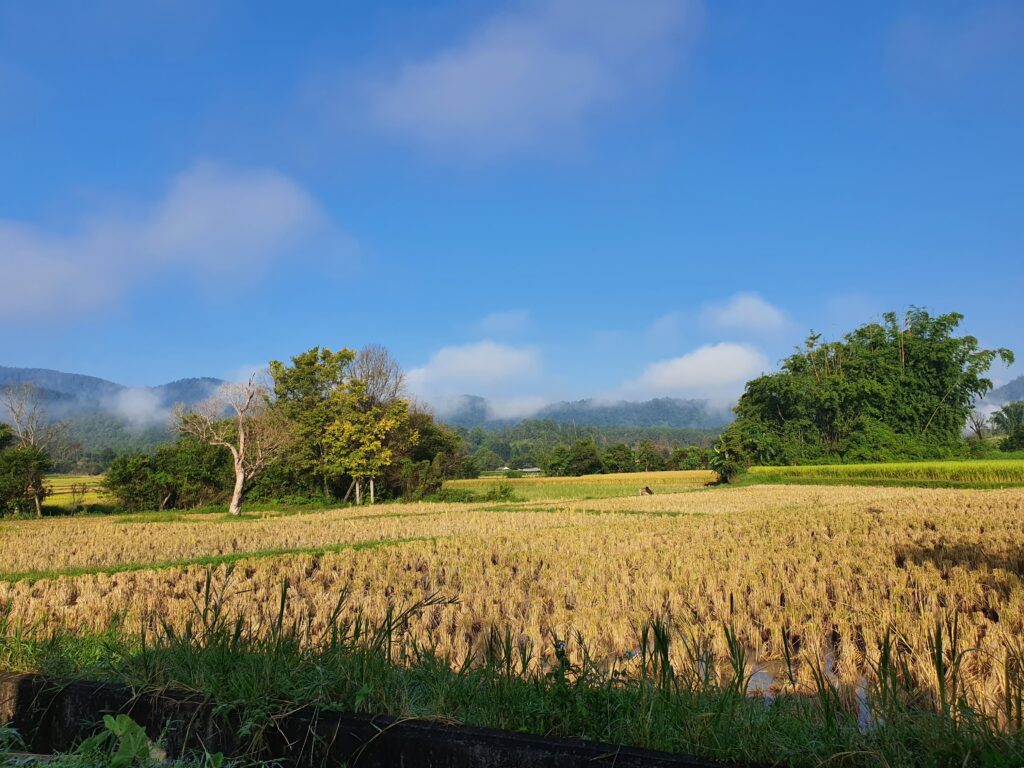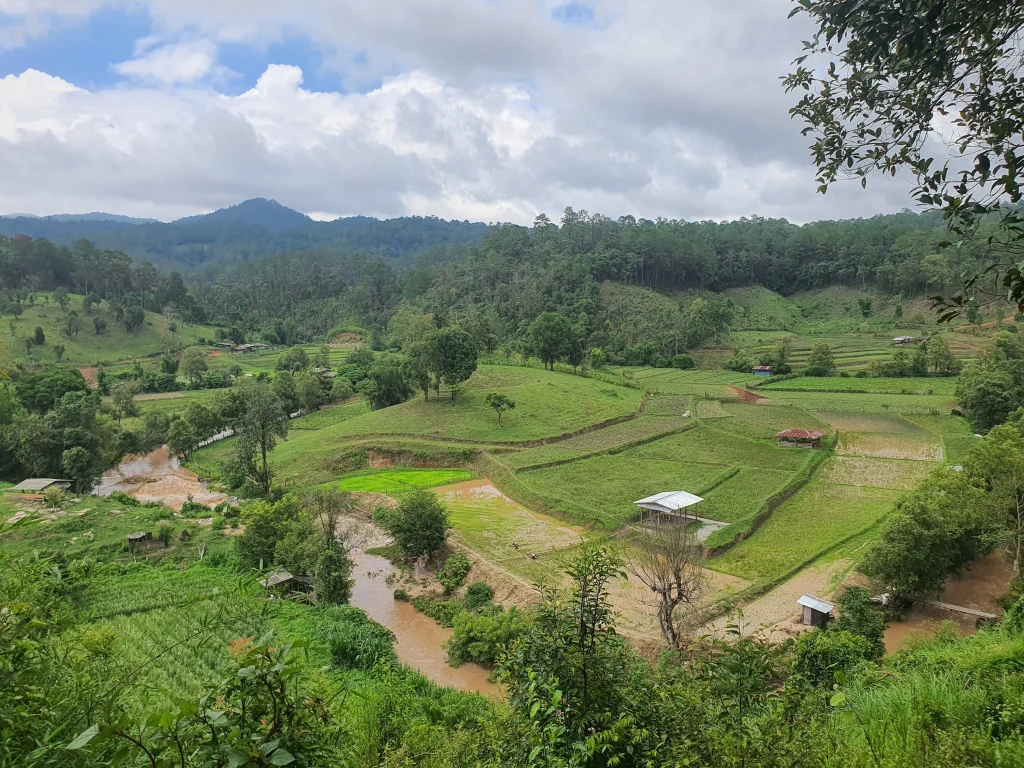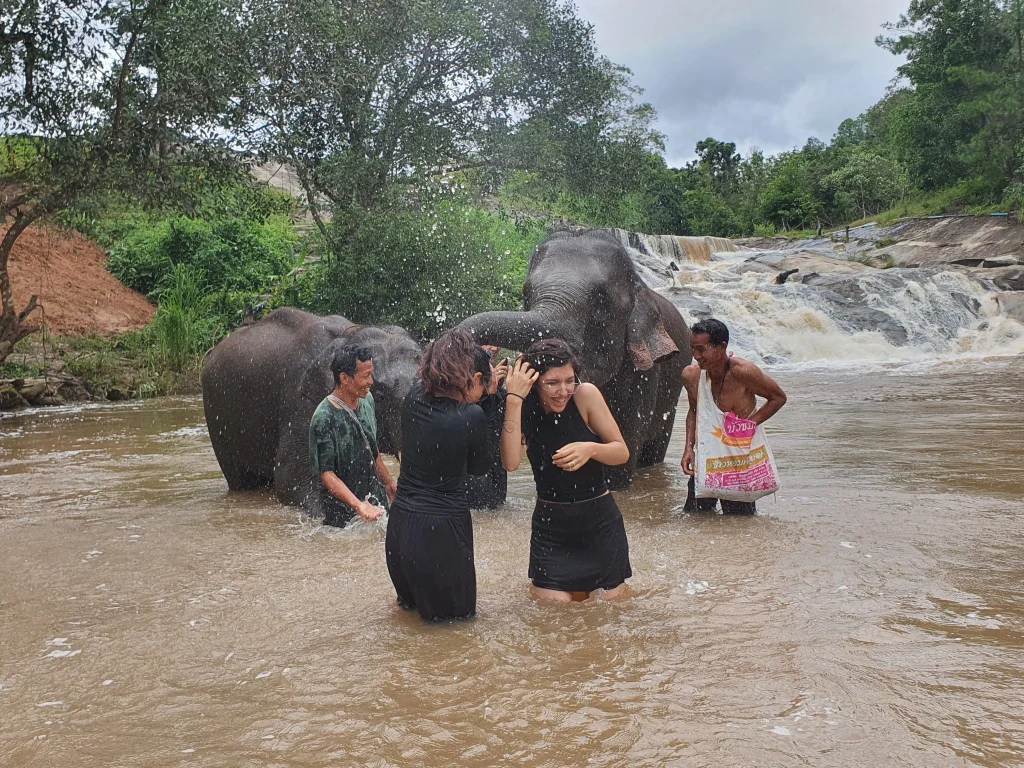
A Land of Mountains, Rivers, and Natural Harmony for Thailand’s Elephants
Chiang Mai is not just a charming cultural destination—it’s also one of the most important places in Thailand for elephant care and conservation. With its unique geography, temperate climate, and rich natural resources, Chiang Mai offers the perfect conditions for creating ethical and sustainable elephant sanctuaries.
These sanctuaries have become beloved destinations for animal lovers, conservationists, and mindful travelers from around the world, seeking to interact with elephants in ways that are compassionate and responsible.
Natural Terrain: Perfect for Elephant Living
One of Chiang Mai’s greatest strengths is its diverse landscape. The province covers over 20,000 square kilometers (more than 12.5 million rai)—and more than 70% of that area consists of forests and mountains, creating an ideal habitat for wildlife, especially elephants, which are large land mammals that require space to roam, forage, bathe, and rest naturally.
Mountain ranges like Doi Inthanon, Doi Luang Chiang Dao, and Doi Suthep are not only vital watersheds but also home to lush tropical forests. These forested areas provide elephants with an abundance of food, natural shelter, and a peaceful environment, far from urban noise and industrial activities—making them ideal locations for elephants recovering from years of hard labor.
Abundant Water: A Lifeline for Elephants

Elephants need large quantities of water every day—anywhere from 100 to 200 liters just for drinking. They also use water for bathing, playing, and regulating their body temperature. Naturally, access to clean and reliable water sources is essential for any elephant sanctuary in Chiang Mai.
Chiang Mai is rich in rivers and streams, such as:
- Ping River, a major tributary of the Chao Phraya River
- Mae Taeng River
- Mae Kuang River
- Mae Rim Stream
These water sources not only support agriculture and daily life in the region but also sustain the ecosystems where elephants thrive. Elephants in sanctuaries are often seen swimming, splashing, and relaxing in these rivers—activities that contribute to their physical and emotional well-being.
Cool Climate: Reducing Stress and Improving Health
Compared to many other provinces in Thailand, Chiang Mai enjoys a cooler climate, especially in rural and mountainous districts like Mae Taeng, Mae Rim, Mae Wang, and Samoeng—home to many well-known elephant sanctuaries.
- In summer, the average temperature ranges from 28°C to 35°C.
- During the cooler months, it can drop to 10°C to 18°C.
Elephants are better adapted to cooler temperatures, and being in a more temperate climate helps them stay relaxed and reduces the risk of respiratory and skin problems. This kind of environment supports their health—physically and emotionally.
Communities That Respect and Live With Elephants
Chiang Mai is also known for its deep historical and cultural ties to elephants, particularly among Karen hill tribe communities, who have lived in harmony with elephants for generations.
In the past, elephants were used to transport goods or work in logging. But when logging was banned and conservation took center stage, many villagers transformed their relationship with elephants—becoming mahouts (elephant caretakers) and founders of ethical elephant sanctuaries.
These communities care for elephants not as tools, but as companions. Their traditional knowledge, patience, and respect ensure that the sanctuaries remain calm, natural places—free from pressure, loud noise, or forced behaviors.
Chiang Mai: A Global Hub for Ethical Wildlife Tourism,
Chiang Mai has become a leading destination in Asia for eco-tourism and ethical wildlife tourism. Sanctuaries here are different from traditional elephant camps—there is no riding, no performances, and no use of force or punishment.
Instead, visitors can:
- Walk with elephants through the forest
- Feed them healthy fruits and vegetables
- Bathe with elephants in natural streams
- Learn about elephant behavior, conservation, and mahout culture
- Discover eco-friendly practices like turning elephant dung into fertilizer or natural products
This form of responsible tourism not only gives elephants a better life, but also creates meaningful income for local communities—supporting long-term sustainability both economically and environmentally.
Chiang Mai: A Land of Opportunity for Thai Elephants

When we look at the big picture—the expansive forests, flowing rivers, cooler climate, local communities that respect elephants, and a global movement toward ethical travel—it’s clear why Chiang Mai stands out as the best home for elephant sanctuaries in Thailand.
It’s not just about saving animals—it’s about preserving culture, respecting nature, and building a better future where humans and elephants can thrive together.
Elephants in Chiang Mai sanctuaries are not merely survivors—they are thriving beings who live with joy, dignity, and a new purpose in a place that truly understands them.
Start your journey today.
Just search for “Le Cher Elephant Home” or book directly through our website → [https://lecherelephanthome.com/]
Related Topics:
Le Cher Elephant Home
83 Moo 2 T.Mae Win A.Mae Wang Chiangmai 50360
Contact Us
lecherelephanthome
@gmail.com
PHONE NUMBER
(+66)910763551
Pingback: Elephant Behavior – Chiang Mai Sanctuary
Pingback: Ethical Elephant Sanctuary Chiang Mai | Le Cher Elephant Home
Pingback: Managing Stressed Elephants at Chiang Mai Ethical Sanctuary
Pingback: Elderly Elephant Care – Ethical Elephant Sanctuary Chiang Mai
Pingback: Explore Ethical Elephant Sanctuary Chiang Mai with Your Family